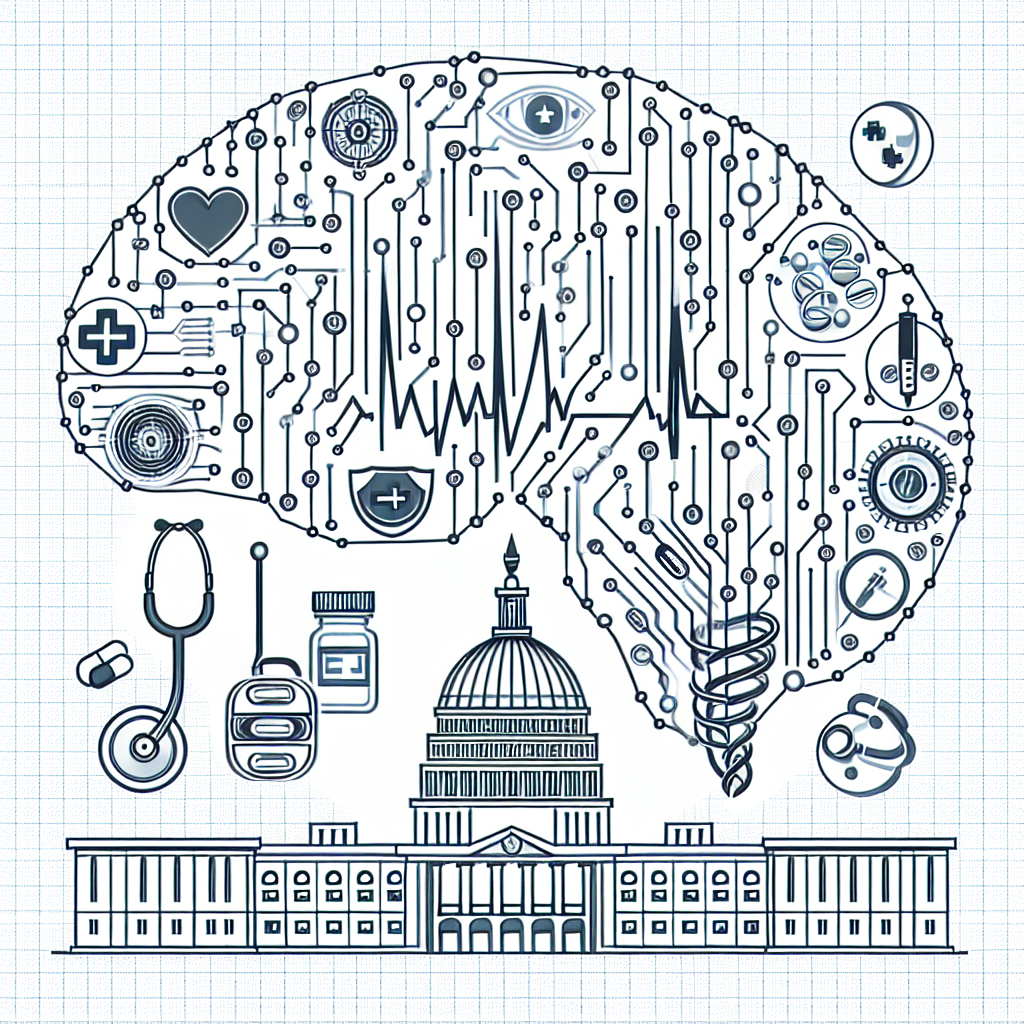Artificial intelligence (AI) is revolutionizing the healthcare industry, and its impact is especially evident in the government sector. With the integration of AI technologies, governments are able to provide better healthcare services to their citizens, improve efficiency in healthcare delivery, and reduce costs. In this article, we will explore how AI is transforming healthcare in government and the benefits it brings.
1. AI in Healthcare Diagnostics
One of the most significant ways AI is transforming healthcare in government is through diagnostics. AI systems are capable of analyzing large amounts of medical data and images, providing accurate and timely diagnoses. For example, AI-powered diagnostic tools can detect early signs of diseases such as cancer, heart disease, and diabetes, leading to better treatment outcomes.
Governments are investing in AI technologies to improve the accuracy and speed of medical diagnoses, especially in rural and underserved areas. AI systems can analyze medical images, such as X-rays and MRIs, to identify abnormalities and help healthcare providers make informed decisions. This not only improves patient care but also reduces the burden on healthcare professionals, allowing them to focus on more critical tasks.
2. AI in Healthcare Management
AI is also transforming healthcare management in government by streamlining administrative processes and improving patient outcomes. AI-powered systems can automate repetitive tasks, such as scheduling appointments, managing medical records, and processing insurance claims. This frees up healthcare professionals to focus on patient care and reduces administrative costs for governments.
AI technologies can also analyze patient data to identify patterns and trends, helping governments make informed decisions about healthcare policies and resource allocation. For example, AI systems can predict disease outbreaks, identify high-risk populations, and optimize healthcare delivery to improve public health outcomes.
3. AI in Telemedicine
Telemedicine is another area where AI is transforming healthcare in government. AI-powered telemedicine platforms enable patients to receive remote medical consultations, diagnosis, and treatment from healthcare providers anytime, anywhere. This is especially beneficial for rural and underserved populations who may not have access to healthcare facilities.
AI technologies like chatbots and virtual assistants can provide patients with personalized medical advice, monitor their health status, and remind them to take medications. This not only improves patient engagement but also reduces healthcare costs for governments by preventing unnecessary hospital visits and readmissions.
4. AI in Drug Discovery
AI is also revolutionizing drug discovery in healthcare. AI-powered systems can analyze vast amounts of biomedical data to identify potential drug candidates, predict their efficacy and safety, and accelerate the drug development process. Governments are investing in AI technologies to speed up drug discovery and bring new treatments to market faster.
AI algorithms can analyze genetic data, protein structures, and scientific literature to identify new drug targets and design novel therapies. This not only improves the efficiency of drug discovery but also reduces the cost of developing new drugs, making healthcare more affordable for governments and patients.
Benefits of AI in Healthcare for Government
There are several benefits of AI in healthcare for government, including:
1. Improved Patient Care: AI technologies can provide accurate and timely diagnoses, personalized treatment plans, and remote monitoring of patients, leading to better healthcare outcomes.
2. Cost Savings: AI-powered systems can automate administrative tasks, optimize resource allocation, and prevent medical errors, reducing healthcare costs for governments.
3. Enhanced Public Health: AI technologies can predict disease outbreaks, identify high-risk populations, and optimize healthcare delivery to improve public health outcomes.
4. Faster Drug Discovery: AI algorithms can analyze biomedical data to identify new drug targets, design novel therapies, and accelerate the drug development process, bringing new treatments to market faster.
5. Increased Efficiency: AI technologies can streamline healthcare processes, improve decision-making, and reduce the burden on healthcare professionals, making healthcare delivery more efficient for governments.
FAQs
Q: How is AI used in healthcare diagnostics?
A: AI is used in healthcare diagnostics to analyze medical data and images, provide accurate diagnoses, and assist healthcare providers in making informed decisions.
Q: How can AI improve patient care in healthcare?
A: AI can improve patient care by providing personalized treatment plans, remote monitoring of patients, and timely interventions, leading to better healthcare outcomes.
Q: What are the benefits of AI in drug discovery?
A: The benefits of AI in drug discovery include faster identification of drug targets, design of novel therapies, and acceleration of the drug development process, bringing new treatments to market faster.
Q: How can governments benefit from AI in healthcare?
A: Governments can benefit from AI in healthcare by improving patient care, reducing healthcare costs, enhancing public health, accelerating drug discovery, and increasing efficiency in healthcare delivery.
In conclusion, AI is transforming healthcare in government by improving diagnostics, management, telemedicine, drug discovery, and overall healthcare delivery. Governments are investing in AI technologies to provide better healthcare services to their citizens, reduce costs, and improve public health outcomes. With the continued advancement of AI in healthcare, we can expect to see even more innovative solutions that will revolutionize the way healthcare is delivered and improve the health and well-being of populations around the world.

